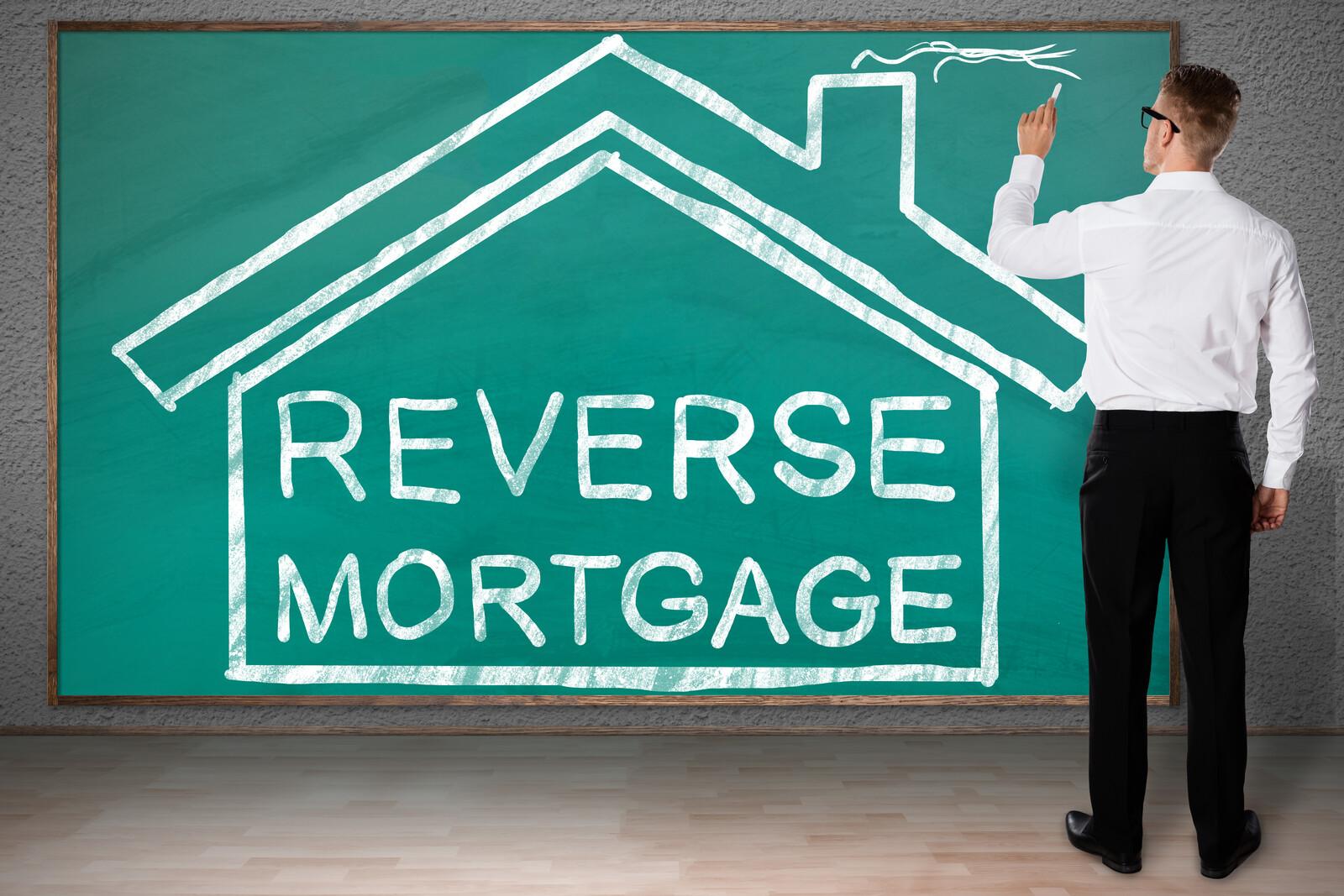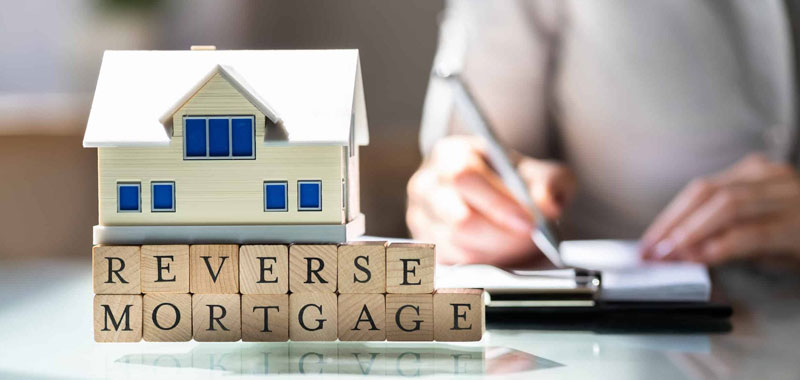Steps to Successfully Purchase Reverse Mortgage for Your Property
Steps to Successfully Purchase Reverse Mortgage for Your Property
Blog Article
Empower Your Retired Life: The Smart Means to Acquisition a Reverse Home Loan
As retirement techniques, many individuals seek efficient approaches to enhance their financial self-reliance and health. Amongst these strategies, a reverse mortgage emerges as a feasible alternative for homeowners aged 62 and older, allowing them to tap right into their home equity without the need of month-to-month payments.
Understanding Reverse Home Loans
Comprehending reverse home loans can be critical for home owners looking for economic adaptability in retired life. A reverse home mortgage is an economic item that permits qualified home owners, generally aged 62 and older, to convert a part of their home equity into money. Unlike conventional home loans, where consumers make month-to-month payments to a lender, reverse home loans allow home owners to obtain settlements or a round figure while maintaining possession of their property.
The amount offered through a reverse home loan relies on several aspects, including the property owner's age, the home's worth, and current rate of interest rates. Notably, the car loan does not need to be paid off until the homeowner markets the home, relocates out, or passes away.
It is important for possible debtors to understand the effects of this economic product, consisting of the effect on estate inheritance, tax factors to consider, and continuous responsibilities associated with building maintenance, tax obligations, and insurance policy. Furthermore, counseling sessions with licensed experts are frequently needed to ensure that borrowers totally understand the conditions of the car loan. In general, an extensive understanding of reverse mortgages can empower home owners to make enlightened decisions about their economic future in retirement.
Benefits of a Reverse Home Mortgage
A reverse home loan provides several engaging benefits for eligible home owners, especially those in retired life. This monetary tool permits seniors to convert a section of their home equity into money, giving important funds without the requirement for month-to-month mortgage repayments. The cash obtained can be utilized for numerous functions, such as covering medical costs, making home renovations, or supplementing retired life revenue, therefore improving overall financial adaptability.
One substantial benefit of a reverse mortgage is that it does not require repayment until the homeowner vacates, offers the home, or passes away - purchase reverse mortgage. This function allows senior citizens to keep their way of living and fulfill unanticipated prices without the worry of month-to-month settlements. In addition, the funds obtained are generally tax-free, allowing homeowners to utilize their cash without fear of tax implications
In addition, a reverse home mortgage can give satisfaction, understanding that it can act as a financial safeguard throughout difficult times. House owners likewise keep possession of their homes, guaranteeing they can continue living in an acquainted setting. Eventually, a reverse mortgage can be a strategic economic source, empowering senior citizens to handle their financial resources efficiently while appreciating their golden years.
The Application Process
Browsing the application process for a reverse mortgage is an essential step for homeowners considering this economic choice. The initial stage involves reviewing eligibility, which typically calls for the property owner to be a minimum of 62 years old, own the residential property outright or have a low home loan equilibrium, and inhabit the home as their main residence.
When qualification is verified, homeowners need to undergo a counseling session with a HUD-approved counselor. This session makes certain that they fully recognize the ramifications of a reverse mortgage, consisting of the obligations entailed. purchase reverse mortgage. After finishing therapy, candidates can proceed to collect essential documentation, consisting of evidence of income, possessions, and the home's worth
The next step requires sending an application to a loan provider, who will certainly analyze the financial and property certifications. An assessment of the home will certainly additionally be performed to establish its market price. If accepted, the lender will provide loan terms, which ought to be examined meticulously.
Upon acceptance, the closing process complies with, where last papers are authorized, and funds are paid out. Recognizing each stage of this application procedure can significantly enhance the property owner's self-confidence and decision-making relating to reverse home mortgages.

Key Considerations Before Purchasing
Buying a reverse home loan is a substantial monetary decision that needs careful factor to consider of a number of vital aspects. Evaluating your economic needs and objectives is equally crucial; determine whether a reverse home mortgage aligns with your lasting plans.

In addition, assess the effect on your current lifestyle. A reverse home loan can impact your eligibility for specific federal government advantages, such as Medicaid. Look for expert support. Consulting with a monetary consultant or a housing counselor can offer important insights tailored to your individual circumstances. By thoroughly evaluating these considerations, you can make an extra enlightened choice about whether a reverse home click for source mortgage is the appropriate financial technique for your retired life.
Maximizing Your Funds
As soon as you have secured a reverse home mortgage, successfully handling the funds becomes a top priority. The versatility of a reverse mortgage permits home owners to use the funds in various means, however tactical preparation is vital to maximize their advantages.
One crucial approach is to develop a budget that details your monetary objectives and regular monthly expenses. By determining necessary costs such as healthcare, real estate tax, and home maintenance, you can allot funds appropriately to ensure lasting sustainability. Additionally, think about making use of a part of the funds for financial investments that can generate earnings or value over time, such as shared funds or dividend-paying supplies.
Another essential facet is to maintain a reserve. Reserving a book from your reverse home loan can help cover unforeseen prices, providing satisfaction and financial stability. Consult with an economic advisor to discover feasible tax ramifications and exactly browse this site how to incorporate reverse mortgage funds right into your total retirement method.
Ultimately, prudent administration of reverse home loan funds can improve your monetary security, enabling you to enjoy your retirement years without the tension of economic unpredictability. Mindful preparation and educated decision-making will certainly make sure that your funds function efficiently for you.
Verdict
In conclusion, a reverse home mortgage offers a sensible monetary technique for seniors looking for to improve their retirement experience. By converting home equity right into easily accessible funds, individuals can resolve crucial expenditures and safe additional monetary sources without incurring month-to-month payments.
Understanding reverse mortgages can be crucial for house owners seeking monetary flexibility in retired life. A reverse mortgage is a financial item that enables qualified homeowners, commonly aged 62 and older, to convert a part of their home equity right into cash money. Unlike conventional home loans, where consumers make month-to-month repayments to a lender, reverse home mortgages make it possible for homeowners to receive payments or a lump amount while retaining ownership of their property.
Overall, an extensive understanding of reverse home loans can equip house owners to make educated decisions regarding their monetary future in retirement.
Consult with a financial expert to discover possible go to my site tax implications and how to incorporate reverse home mortgage funds right into your general retirement strategy.
Report this page